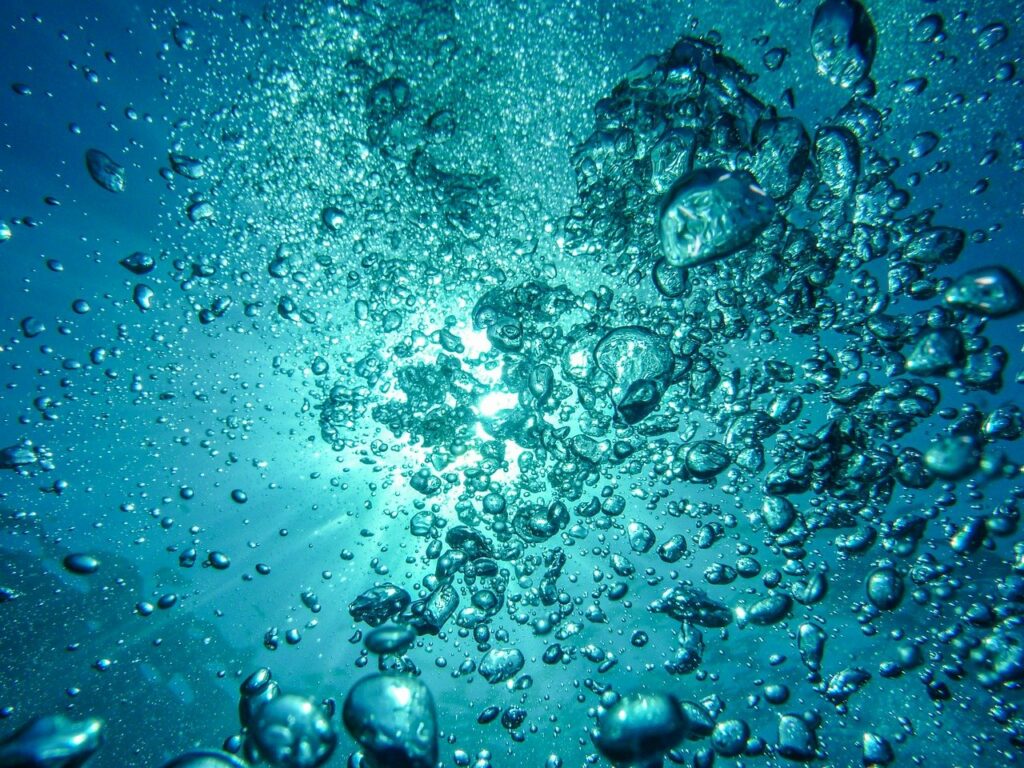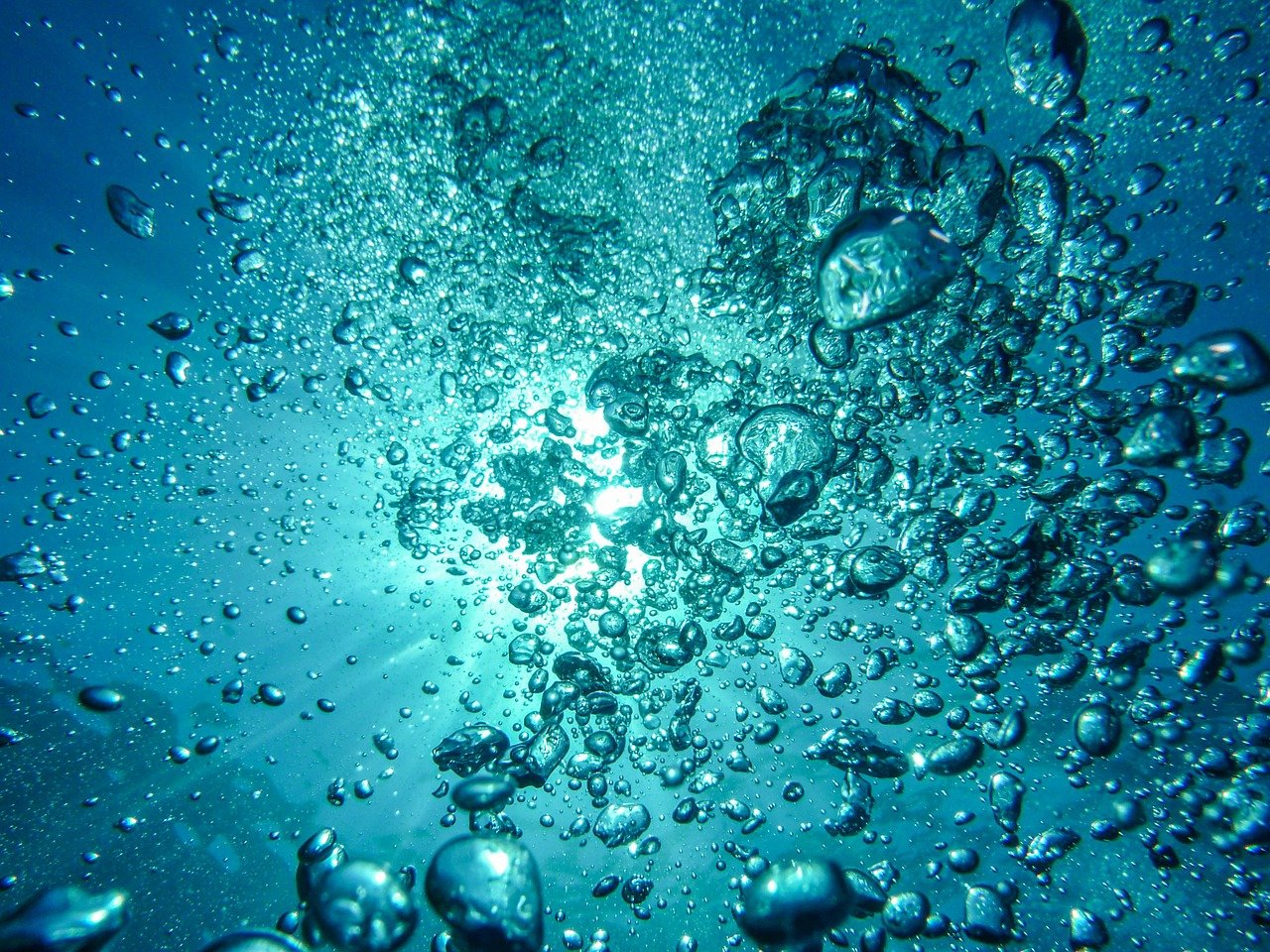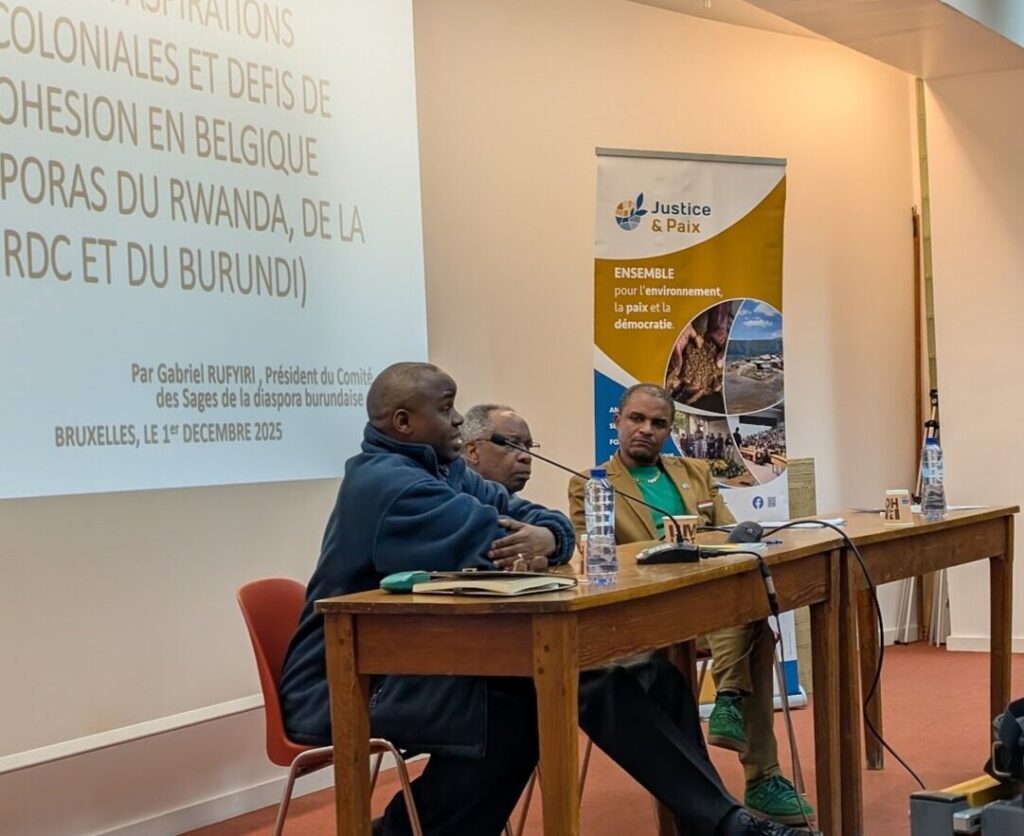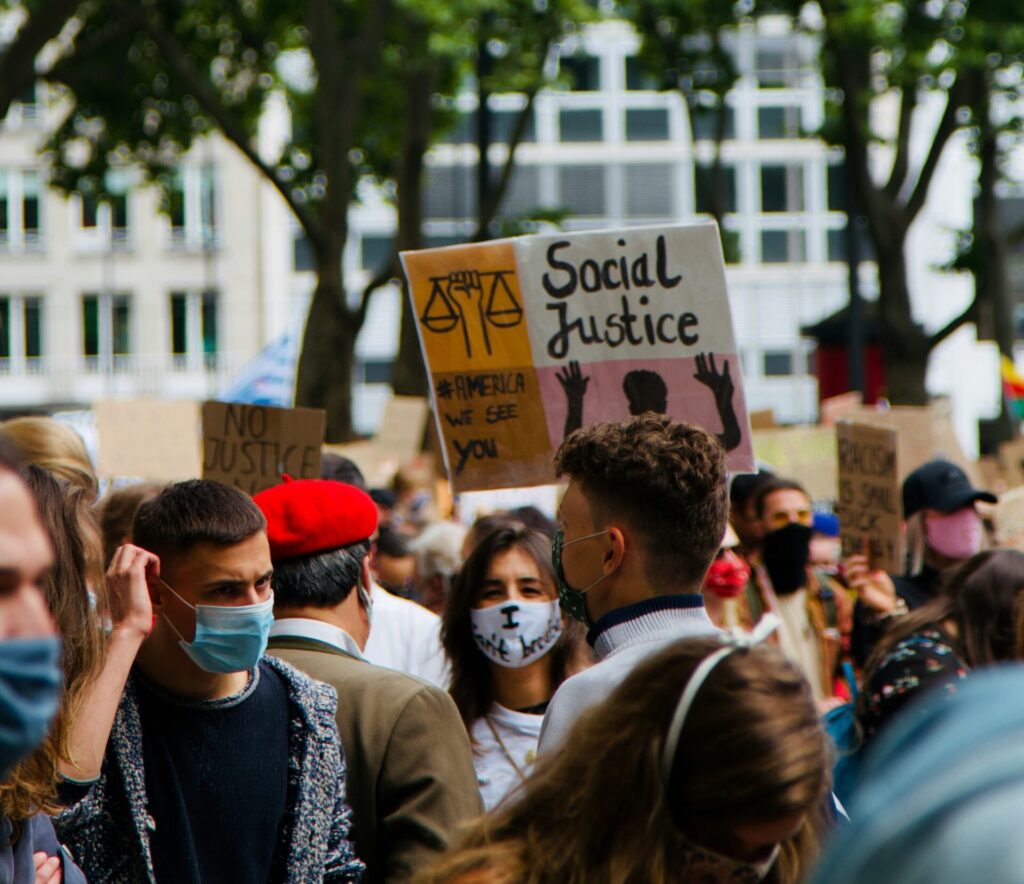
Access to water, a fundamental and vital element for humans after oxygen, is an inalienable and universal right. Increasingly rare, the management of blue gold in the world requires increasingly concerted multilateral and global actions.
Each of us uses and consumes it daily, several times a day and, perhaps, without realizing it out of habit and carelessness; sometimes it seems invisible and neglected and ultimately becomes almost a detail. This water which we enjoy every moment of our life is the most necessary element after oxygen. The effects of climate change and waste pollution make it a strategic resource. But its projected rarity places it as one of the issues of potential serious tension across the world.
Through his encyclical “Laudato Si'”, Pope Francis invites all people to take care of the earth as well as our “Common Home”, the latter being threatened by humans who want to be masters of the world. He controls all the dynamics and has all the rights but resists assuming the responsibilities of his primordial mission as guardian which could therefore fall to him.
Water is a fundamental and precious element. She is a vital asset [1]After oxygen, water is a vital good. A man can live five weeks without eating but only 3 to 4 days without drinking. although we tend to neglect it. On Earth, 97.5 % of available water is salty and unfit for consumption. It is contained in the oceans. Only 2.5 %s are made fresh water [2]From the point of view of salinity, fresh water is water with a salinity less than 0.5. , is around 35.2 million billion cubic meters. In the world 3 out of 10 people do not have access to drinking water services.
Although its quantity seems to give the perfect illusion of an infinite resource, nowadays, 70 % of fresh water is devoted to agriculture, 20% to industry, 2/3 of which is consumed to cool the reactors nuclear and only the remaining 10% are used for the daily needs of Man. Large global companies are also accused of consequently contributing to “ water stress » according to a CDP study[3]CDP is a non-profit charitable organization that manages the global disclosure system (for investors, companies, cities, states and regions) to manage their... Continue reading (Disclosure Insight Action).
Even today, millions of people across Europe still remain without access to collective sanitation services, numerous water cuts are observed, and prices for drinking water continue to increase in Belgium and all over the world.
“The percentage of the world population deprived of access to basic drinking water supply services has been halved, from 19 % in 2000 to 10 % in 2017. This proportion, reduced in all regions prioritized by the “ Sustainable Development Goals » (SDG in acronym). In 2017, 90 % of the 785 million people who still had precarious access to services, who used unimproved water points or who drew on surface water, were concentrated in three regions of the world, namely sub-Saharan Africa. (400 million), East and Southeast Asia (161 million) and Central and South Asia (145 million). More than half of the 144 million people who still collected water directly from streams, lakes or ponds lived in sub-Saharan Africa. [4]Progress in water, sanitation and household hygiene 2000-2017. Close-up on inequalities. New York, United Nations Children's Fund (UNICEF) and Organization … Continue reading.
Water: a common good and a fundamental right (SDG 6) Access to water is a major global issue for populations, whether in terms of health, food or the fight against inequalities. This is one of the 17 goals considered priorities to enable sustainable development at the global level. Water must remain a public heritage accessible to all [5]Galland F., The great game. Geopolitical chronicles of water, CNRS, Paris, 214..
Thus, the States of the world must guarantee access to water for each individual and in qualitative and quantitative conditions and at acceptable costs. This is why Pope Francis adopts a global reflection on contemporary issues. It thus addresses the most concrete questions of ordinary life both at the structural level and the way in which they translate into the daily lives of populations. This is illustrated by various questions linked to the problem of the privatization of water even though it is a common good; questions of awareness of responsibility for the common fate of humanity. It also addresses educational and cultural issues to address the challenges of global peace and justice.
Water is a common good ”, and must not be marketable. Its access is an inalienable right. In our cities and our countryside, as throughout the world, the right to water, like all human rights [6]The Assembly adopted by 122 votes in favor and 41 abstentions a draft resolution, presented by Bolivia, on the fundamental right to water and sanitation (A/64/L.63/Rev.1) in … Continue reading, is based on human dignity and not on purely quantitative evaluations taking water as an economic good. Without water, life is threatened. Therefore, the right to water is a universal and inalienable right.
After 15 years of debate, the UN General Assembly recognized access to quality water and sanitation facilities as “ a fundamental human right, essential to the full enjoyment of right to life ".
Indeed, for social justice and to reduce the risks of future conflicts, water management must be placed in the hands of citizens in interaction with their local communities, in order to guarantee its conservation to transmit it to the future generations.
Beyond the individual scale, with the questions of accessibility and fundamental rights that it raises, water also represents a collective issue of peace and security.
The 9th edition of the World Water Forum, which will take place in March 2022 in Dakar, will focus on this reading of the theme. This forum on “water security for peace and development” should allow professionals and political leaders to reflect on solutions to respond to the water problems of the 21st century and formulate concrete proposals to bring them to fruition. the world's attention.
We speak of water stress when the planet experiences drought, salinization and cooling attacks which are characterized by evaporation beyond normal evaporation. This is also the case for any region which tends to consume a quantity of water greater than the available stock. This may be due to growing industrial or agricultural needs or to the depletion of water tables (which also results in the exposure of the earth's crust to the danger of earthquakes). Although it is an essential resource, access to water is increasingly threatened by demographic pressure and industrial or agricultural needs.
In the Middle-East : In this region of the world, climatic and water conditions are among the least favorable on the planet. The two major sources, the Tigris and the Euphrates, find themselves overexploited by Syria, Turkey and Iraq (highly populated states) which have built dams and canals in order to exploit their waters. In this context of tension, water sharing becomes a security issue. Turkey, with its advantageous geographical position, is unilaterally implementing a policy of maximizing its hydraulic potential by monopolizing the full potential. As these countries do not manage these waters in a concerted manner, this has led to an unequal balance of power which profoundly weakens their relations. Inevitably, water shortage in the region becomes one of the major causes of open armed conflict in the area. [7]Bruno HEUCHON, “ Water management and conflicts in the Middle East Case study: Turkey-Syria-Iraq » Memory, UCL, 2919..
In Australia : 70 % of the surface of the territory is made up of deserts. However, thanks to the development of the Murray River, irrigated agriculture remains one of the country's defining assets. Although the majority of private properties have swimming pools, individual Australians are ranked among the biggest consumers of water in the world. Since the end of the 1990s, the salinization of Australian lands has further intensified, causing land clearing and forest fires. Furthermore, the continual decline in rainfall amounts increases, each year, certain concerns about climatic migrations and future conflicts.
In the USA , California with its 100 km of aqueduct which carries water from the “Owens River” to the city of Los Angeles is an example which confirms, as the researcher warns Jon Christensens that “ There is no longer enough water to supply everyone! », and which proposes to invest more to guarantee respect for the human right to water enshrined in Californian law and also to challenge the twists and turns of climate change. This situation is the basis ofa conflict between the United States and Mexico. In fact, the United States is seeking to recover the approximately 200 million m3 of water from the Colorado that seeps into Mexican soil, by planning to cement the All American Canal located on the border.
Another example of a “ water war » on the horizon and which should not go unnoticed, is that of the situation of Lake Chad Basin , a shallow lake bordering Nigeria, Niger, Chad and Cameroon. Its exhaustion would be a geopolitical catastrophe but also an economic one for the four countries that depend on it. The causes are mainly anthropogenic. In 55 years, it has lost 90% of its surface area. The situation is urgent because today the lake covers a basin of approximately 2,500 km2. The lake is overexploited and the population does not pay enough attention to this large water reservoir whose situation is precarious. The consequences of total exhaustion would be dramatic, there would be no more opportunity to fish in the lake, no more food crops, no more livestock and above all no source of drinking water. A solution would be under study and would consider the transfer of water from the Ubangi River which waters the north of the DRC to the Lake Chad basin. No way, for the government of DR Congo to transfer its waters to Lake Chad. The reasons given are the fear of other repercussions, notably the alteration of biodiversity, and the drought of the regions of Ituri and Uélé due to the dry wind coming from the Sahara.
The final declaration of the Summit of Heads of State on the Congo Basin and the Blue Fund, held in Brazzaville, was rejected by the DR Congo. We are therefore once again observing a potential conflict in the making around the precious resource.
Finally, among the projects that posed a problem was the construction of the Ethiopian dam. The watering of this dam “of the renaissance of Ethiopia » with the largest water reservoir in Africa, posed to Egypt the problem linked to potential water stress on the flow of the Nile.
Being a renewable resource, its management requires measures which should make it possible to control the demand for water by increasing the overall economic efficiency of its use as a natural resource. Good governance of basins must respect the needs and necessities of all parties involved in the use of water while respecting the decological democracy and hydro-diplomacy.
A good example is the management of the Senegal basin. This case clearly illustrates the concepts ofhydro-diplomacy and thehydro-solidarity applied between countries watered by the same basin. A second example comes from the agreement on the “equitable sharing” of water resources between the countries of the Middle East, namely Israel, all neighboring Arab and Palestinian states for the development of a real regional cooperation policy. whose objective was to achieve a comprehensive and sufficiently inclusive peace.
Already 30 years ago, political leaders were sounding the alarm about the risks of conflicts linked to the management of water resources. Despite these often pessimistic remarks, for example the vice-president of the World Bank for sustainable development issues in August 1995, Ismail Serageldin, who declared during a conference in Stockholm that “ the wars of the next century will have water as their object » [8]LASSERRE (Frédéric), DESCROIX (Luc), Waters and territories: tensions, cooperation and geopolitics of water, Sainte-Foy, Presses de l’Université du Québec, 2002.. Furthermore, in the same sense, the Secretary General of the Second United Nations Conference on Cities warned in June 1996 for his part that “ (water) could be a trigger for conflict, like oil in the past »[9]Wally N'Dow, Secretary General of the second UN-HABITAT (United Nations Human Settlements Program) conference, known as HABITAT II, held in Istanbul. LASSERRE (Frédéric), … Continue reading, it is important to remember today again the importance of multilateralism and good governance in managing the water crisis in basins that are still available and increasingly coveted.
Many projects on global water governance have been launched and subsequently abandoned due to lack of common vision and desire for sustainable management of this precious resource. Today we deplore the direct consequences of such a lack of management, notably large-scale environmental and climatic migrations which unfortunately continue to intensify.
The problem of good management of this resource by “hydro powers” [10]Political powers which have control over large potential basins., has become very urgent. The issues and challenges must be considered by all governments, international agencies, the private sector and local communities. Greater attention must be paid to coordination and multilateral cooperation between these actors at all levels.
One of the solutions to the water crisis is ecological democracy. A democracy that will help deal with the water crisis through hydro-diplomacy and this at all levels of society in order to favor avenues of dialogue and thus avoid the militarization of conflicts linked to water. This is how in the encyclical letter “ Laudato Si' » Pope Francis says that “ The urgent challenge of safeguarding our “common home” » includes the concern to unite the entire human family in the search for sustainable and integral development, because we know that things can change […] I hope that this Letter […] will help us recognize the greatness, the “urgency and beauty of the challenge that presents itself to us” [11]Pope Francis, “ Laudato Si' » (May 24, 2015). .
Patrick Balemba B. & Patient Baderha Batumike.
Attachments
Notes[+]
| ↑1 | After oxygen, water is a vital good. A man can live five weeks without eating but only 3 to 4 days without drinking. |
|---|---|
| ↑2 | From the point of view of salinity, fresh water is water with a salinity less than 0.5. |
| ↑3 | CDP is a non-profit charitable organization that manages the global disclosure system (for investors, businesses, cities, states and regions) in order to manage their environmental impacts. |
| ↑4 | Progress in water, sanitation and household hygiene 2000-2017. Close-up on inequalities. New York, United Nations Children's Fund (UNICEF) and World Health Organization (WHO), 2019. |
| ↑5 | Galland F., The great game. Geopolitical chronicles of water, CNRS, Paris, 214. |
| ↑6 | The Assembly adopted by 122 votes in favor and 41 abstentions a draft resolution, presented by Bolivia, on the fundamental right to water and sanitation (A/64/L.63/Rev.1) in which it declares that the right to safe and clean drinking water is a fundamental right, essential to the full exercise of the right to life and all human rights. It calls on States and international organizations to provide financial resources, build capacities and carry out technology transfers, particularly for developing countries. |
| ↑7 | Bruno HEUCHON, “ Water management and conflicts in the Middle East Case study: Turkey-Syria-Iraq » Memory, UCL, 2919. |
| ↑8 | LASSERRE (Frédéric), DESCROIX (Luc), Waters and territories: tensions, cooperation and geopolitics of water, Sainte-Foy, Presses de l’Université du Québec, 2002. |
| ↑9 | Wally N'Dow, Secretary General of the second UN-HABITAT (United Nations Human Settlements Program) conference, known as HABITAT II, held in Istanbul. LASSERRE (Frédéric), BOUTET (Annabelle), “Will international law resolve water sharing disputes? The Nile Basin and some other cases” in Études nationaux, vol. 33, no. 3, 2002. |
| ↑10 | Political powers which have control over large potential basins. |
| ↑11 | Pope Francis, “ Laudato Si' » (May 24, 2015). |





